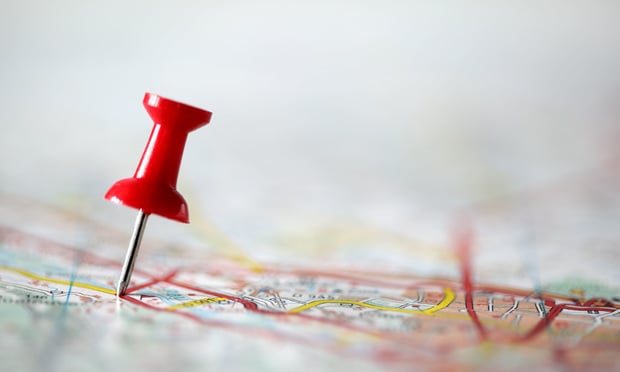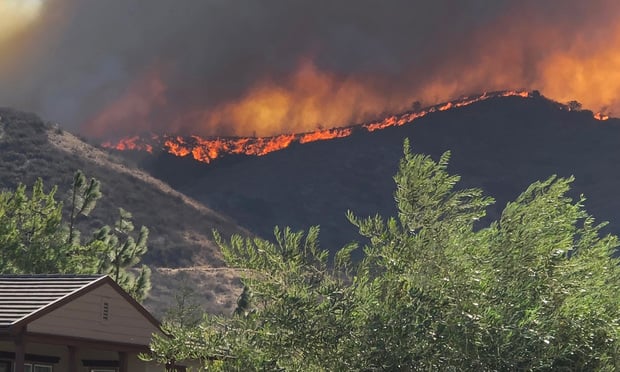“Surreal” is the only word I can find to most accurately describe the whole experience of Hurricane Sandy. Yet it seems inappropriate somehow. Glib, even. But it's anything but that.
How else can you describe your reaction to seeing hundreds of homes destroyed in your hometown? The gut-wrenching feeling of knowing 14 people in Staten Island alone have died in what most of us thought would surely be just another “boy cries wolf” weather event hyped by the media? The harrowing sight of so many of your friends and neighbors' dazed looks as they assess their damage, some having lost everything?
It's Sunday, Oct. 28, and I learn that NU's Hoboken, N.J., office is already closed as Sandy makes her advance. As I work from home on Monday—my 2-year-old son and my dog competing for my attention the entire time—you can almost feel the approaching havoc in the hairs on the back of your neck, the inevitable coming wave as the disconcertingly light rains begin to swirl.
It's too late now, there's nowhere to run. All we can do is keep our flashlights handy and strap in for the ride. Hopefully, this'll be like Irene, or my divorce: Noisy, destructive, but over relatively quickly.
By Monday evening, it's obvious we've all underestimated Sandy's strength. The winds have picked up, and are getting louder. I'm giving my son a bath and the lights finally wink out at 7:20 p.m. Minutes later, my aunt who lives downstairs knocks on my apartment door, walks in and straps a small search light on my head so I can finish the job. My son finds this wonderfully entertaining.
A few stories by candlelight later and my boy is asleep. On my iPhone I learn from Facebook that I'm not the only one without power in my borough, and my South Jersey friends are already feeling the brunt of Sandy's wrath. One, a policewoman in Collingswood, N.J., has been called in, and is happy to earn the extra cash. More bad news: Atlantic City is already under water for blocks. The entire Jersey Shore is FUBAR, a colleague texts.
As the winds grow ever louder, the transformer explosions begin—but for the most part, you can't hear them. Bright flashes that you know aren't lightning. One that can't be more than a block away, bright as a searchlight. But that one, I hear loud & clear.
At that point I realize that never in my life have I felt the powerful instinct that says GET THE HELL AWAY FROM THE WINDOW, NOW. And I listen to it.
The texts begin from my ex-wife who's determined to stay at our house, which sits on a picturesque wooded street that quickly turns sinister in foul weather. Tall beautiful Sycamore trees are all well & good until you realize one could fall and smash into your home.
And tonight, fall they do.
I hear from her that the power is gone there too, and the trees in our yard are beginning to split from the force of the wind. One has already crashed into the pool. She texts me that she's going outside in the dark to investigate.
“Stay in the goddamn house!!!” I text her. I can't get a call through.
Ten minutes later I hear back. There's more damage than she thought: Several trees are down. One's on our neighbor's garage. But none have hit our house—yet. The wind is still loud as Hell.
Another hour of darkness, wind and sirens, and my phone's battery is dying. People are signing off on Facebook, and after learning a good friend and his parents had to be evacuated from their home as the flood waters rose, I decide to follow suit.
I move my son into bed, blow out the one candle I still have lit and finally call it a night, thanking the Lord for safe, warm shelter. The last image I see before nodding off is an image posted on Facebook by an old co-worker of Manhattan Island, dark as Death. The Empire State Building and the WTC Memorial provide the sole two points of light.
Dawn.
It's 8:30 a.m. Tuesday and eerily quiet outside as I head to my house to survey the damage. A short drive later the destruction becomes painfully stark. Downed trees and power lines litter the streets everywhere you look, and not a single business is open. There's no cell service.
People are starting to venture out, shell-shocked. Sections of a few major roads like Hylan Boulevard are completely under water. I have to turn back around several times, as trees block my path. At my house, at least four trees are either split into pieces or downed completely. Word spreads that all of the beach communities—of which there are many on Staten Island—were swallowed by the rising waters.
Later that day, long, tense lines will start to form to buy gasoline to power both generators and cars.
Still, I can't begin to complain. I know our damage is far from the worst in my community. I'm already hearing that people have died, a toll that will surely rise in the coming days. I'm safe, my family is safe, and at least the trees didn't smash into the house. Even the cat is OK. I have a lot to be thankful for. And I've discovered still have some sense of humor left.
“Bring your pretty face to my axe!!” I shout to no one in particular, echoing the dwarf Gimli from “The Lord of the Rings” as I take my first swings at the fallen trees in my yard. It's a mess of twisted branches and splintered wreckage. My ex laughs, the first trace of a smile I've seen on her since I showed up.
The slow, painful road to recovery has begun.
POSTSCRIPT: As I detail in NU's October cover story, life in Staten Island today remains grim for many of those whose homes and other property were claimed by Superstorm Sandy. All told, 24 people died in my hometown from the storm surge, some of them people who opted to stay in their homes and ride out the storm—and in so doing, perished. Many of them were seniors; two of them were children, literally torn by the surge from their mother as the waters claimed their neighborhood.
The recovery effort continues. Only a small fraction of the businesses that bore Sandy's wrath the most have reopened; may did not have flood or business interruption cover, and simply don't have the money to do so. My own claim was handled thoroughly and fairly quickly; and while that was the case for many of us with relatively minor damage, many more whose homes were wiped out in areas such as South Beach, Oakwood beach and Midland Beach are still trying to rebuild a year later. A state buyout of many of those devastated homes will help many residents, but the “forgotten borough” is a long, long way from being back to business as usual.
Want to continue reading?
Become a Free PropertyCasualty360 Digital Reader
Your access to unlimited PropertyCasualty360 content isn’t changing.
Once you are an ALM digital member, you’ll receive:
- Breaking insurance news and analysis, on-site and via our newsletters and custom alerts
- Weekly Insurance Speak podcast featuring exclusive interviews with industry leaders
- Educational webcasts, white papers, and ebooks from industry thought leaders
- Critical converage of the employee benefits and financial advisory markets on our other ALM sites, BenefitsPRO and ThinkAdvisor
Already have an account? Sign In Now
© 2025 ALM Global, LLC, All Rights Reserved. Request academic re-use from www.copyright.com. All other uses, submit a request to [email protected]. For more information visit Asset & Logo Licensing.








